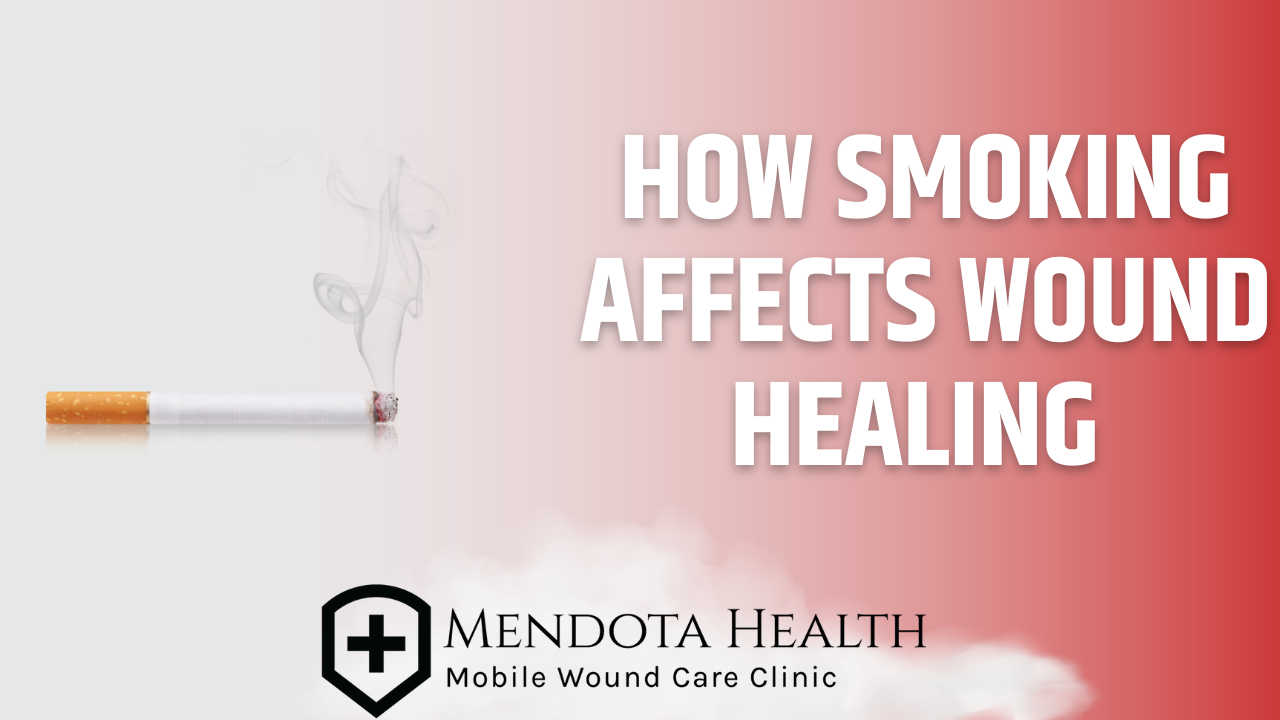
03 Nov How Smoking Affects Wound Healing
Many people know smoking can cause lung cancer and heart disease, but did you know smoking can affect wound healing? Cigarette smoke is filled with harmful chemicals including nicotine, hydrogen cyanide, and carbon monoxide that affects wound health in many ways. Whether you suffer from chronic wounds, diabetes, or post surgical wounds, knowing how smoking affects your body’s healing process can be the difference between a speedy recovery and major complications.
here are ways smoking prevents wound healing
Pain
Chemicals from smoking may increase inflammation in your body. This can affect the way the body interprets pain signals, which can increase the amount of pain smokers experience even after the wound has healed.
Infection
The risk of wound infection doubles for smokers! Neutrophils, the cells in blood that fight infection, function is limited by chemicals in cigarette smoke. Neutrophils are like the “bodyguard” cells, and without them being able to function fully, your body has a harder time protecting itself against infection.
Blood flow
Smoking causes blood vessels in your body to narrow. This is dangerous because it can slow down the blood supply. Smoking also makes the blood thicker, making it even harder for blood to travel through the narrow vessels. As a result, your body isn’t getting nutrients it needs to help repair the wound and build new tissue as quickly. For example, hemoglobin, a molecule that carries oxygen through the body, cannot hold as much oxygen when attempting to flow through the thick blood and narrow blood vessels.
Poor Nutrition
The effects of nutrition and smoking are not as widely known. Nicotine is an appetite suppressant, which threatens a smoker’s ability to get the extra calories and vitamins required for wound healing. Without proper nutrition, wounds may take longer to heal. Smokers also tend to have lower levels of vitamin C, even with supplements. This is because the body is concentrating the vitamin C against the harmful effects of smoking rather than nourishing the rest of the body.
Diabetes
People who smoke are 30 to 40 percent more likely to develop type 2 diabetes than people who do not smoke. With diabetes, there are several factors that can affect the wound healing process including high blood sugar, poor circulation, and immune system deficiency. Up to 34% of those with diabetes will develop a wound called a foot ulcer.
More than half of all foot ulcers (wounds) will become infected and require hospitalization, and 20% of infections result in amputation.
Are the Effects Reversible?
Effects of smoking are reversible! If you quit smoking, you can help your wound heal faster, decrease the chance of infection, and become active sooner.
Tips to Stop Smoking
The urges may be strong, but these tips may help you overcome them
- Nicotine replacement therapy
- Chew on gum/ candy
- Avoid triggers
- Stay active
- Join a support group/ lean on loved ones
At Mendota Health, our goal is to help people get back to living a life of vitality by healing their wounds. Part of that process includes educating our patients on how smoking can negatively affect the healing of their wounds and offer resources to help them quit.

